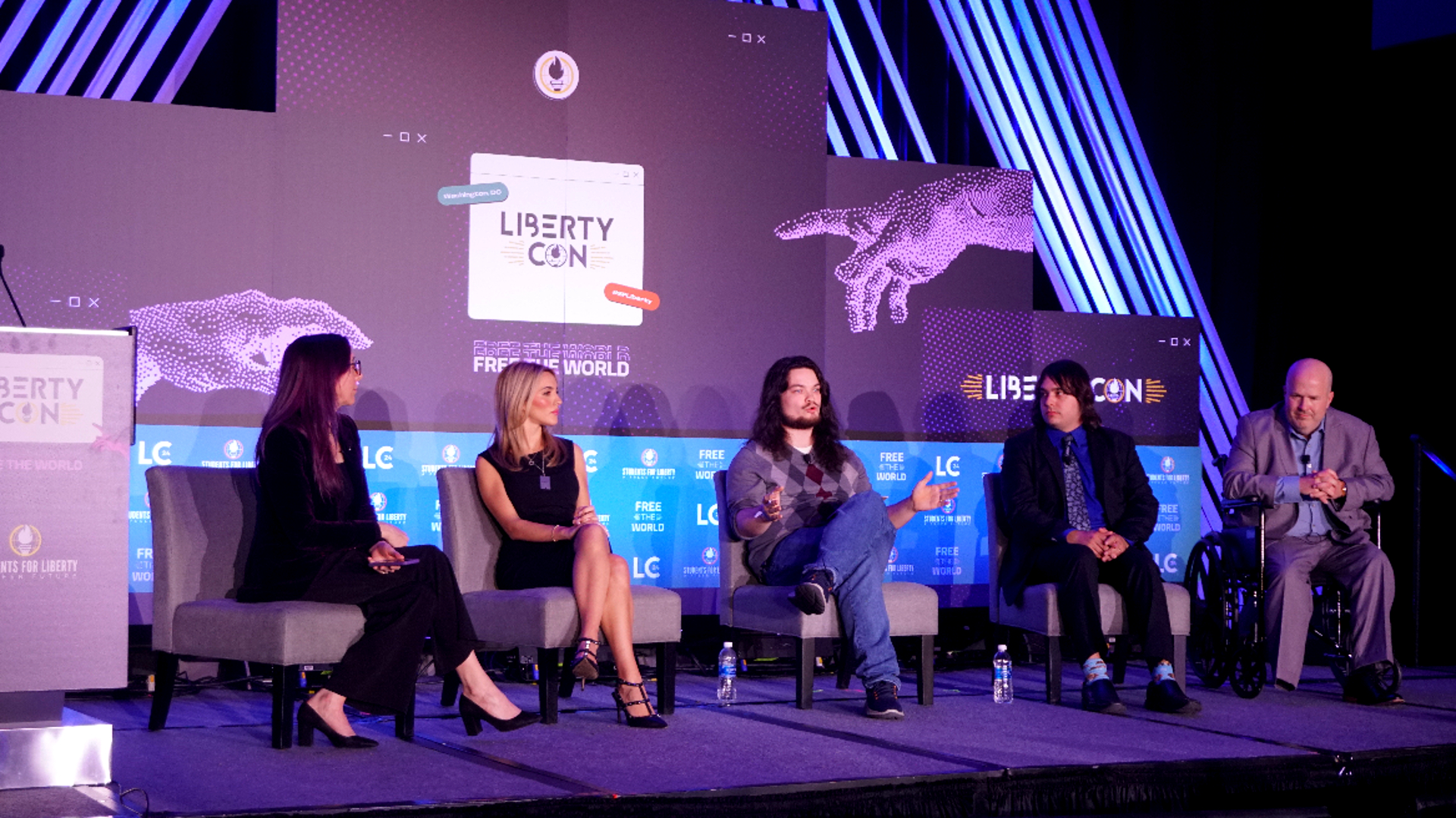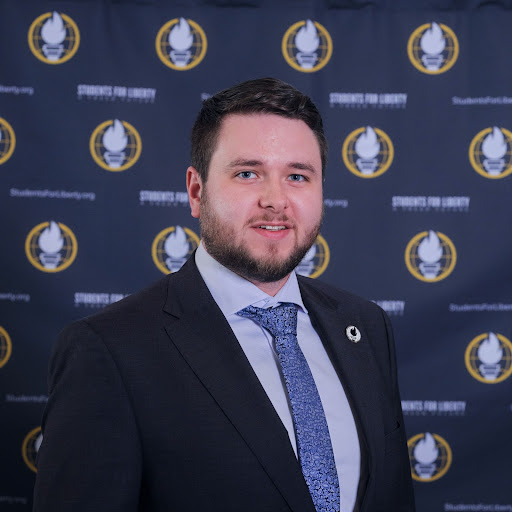Today, more than ever, journalism is confronted with significant challenges, especially with media outlets striving to captivate audiences and deliver returns to shareholders.
But what happens when sensationalism and biased narratives become the norm? Where can individuals turn for accurate information when journalists prioritize agendas over facts? And how do we find common ground in an era of intense political division and factionalism?
Among the many enlightening discussions at Students For Liberty’s recent LibertyCon International 2024, one panel stood out for its exploration of truth, integrity, and accountability in journalism and media.
Moderated by Katherine Mangu-Ward, Editor-in-Chief at Reason, the panel on navigating truth in a world of misinformation featured sports journalist Emily Austin, war journalist Dylan Burns, documentarian Ford Fischer, and news correspondent David Preston.
The conversation delved into the complexities of modern journalism, where the pursuit of truth is often challenged by biases, misinformation, and the relentless pressure for clicks and views.
Emily Austin, a prominent activist for free speech in addition to her sports journalism, emphasized the importance of sticking to the facts, urging journalists to critically evaluate sources and consider the context in which information is presented.
The host of The Hoop Chat w/Emily Austin highlighted the responsibility of individuals to verify information and resist the temptation to spread sensationalized or unverified claims, which can have significant negative consequences.
Dylan Burns shared insights from his experience reporting from conflict zones, where the fog of war can blur the lines between truth and propaganda. He recounted instances where misinformation spread rapidly on social media, citing a personal example of inadvertently sharing a misleading video during the aftermath of a tragic event.
Burns emphasized the importance of accountability in journalism, acknowledging mistakes and taking swift action to correct them. Highlighting the incredibly powerful role of journalism in society, he asserted that “journalism is the first draft of
history.”
Documentarian Ford Fischer echoed the sentiment of accountability, emphasizing the need for transparency and honesty in storytelling. In his work, Fischer focuses on primary source documentary footage to provide unfiltered information.
“By offering raw footage without commentary, viewers can make informed judgments about events.”
He shared examples of grassroots journalism uncovering truths overlooked by mainstream media, highlighting the power of independent voices in challenging dominant narratives.
Moreover, Fischer stressed the importance of seeking out diverse perspectives and engaging with individuals across ideological divides to foster a more informed public discourse.
David Preston, a stalwart advocate for journalistic integrity, urged fellow reporters to confront their biases and uphold the highest ethical standards. He emphasized the need for humility in acknowledging limitations and actively seeking out diverse perspectives.
Preston urged journalists to challenge their own assumptions and actively seek out information that challenges their beliefs. He emphasized that, “consuming diverse media sources helps individuals discern truth from opinion.”
During the panel discussion, the speakers continually underscored the pivotal role of integrity in journalism. They stressed the significance of transparency, accountability, and an unwavering commitment to truth.
Furthermore, they cautioned against the lure of sensationalism, urging journalists to prioritize accuracy in their reporting. The panelists emphasized the profound influence journalists wield in shaping public opinion, and highlighted the immense responsibility that comes with this influence.
The discussion touched on important concerns about the growing trend of online platforms and governments censoring content deemed controversial or offensive, emphasizing the importance of defending free speech rights and resisting efforts to silence dissenting voices, regardless of political ideology.
The panelists also stressed the need for transparency and accountability in decisions related to content moderation, urging platforms to uphold principles of neutrality and fairness.
“Somewhere behind the censorship so often lurks a person with actual political power.” — Katherine Mangu-Ward
Ultimately, the discussion left attendees with a powerful message: in a world inundated with misinformation, the pursuit of truth remains more important than ever. By upholding the principles of integrity, accountability, and transparency, journalists can play a vital role in fostering a more informed and engaged public.
If you’d like to watch the panel discussion in its entirety, be sure to check out the video below from LibertyCon International 2024.
This piece solely expresses the opinion of the author and not necessarily the organization as a whole. Students For Liberty is committed to facilitating a broad dialogue for liberty, representing a variety of opinions.



